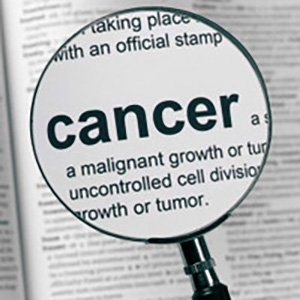Prostate-specific antigen response after Abiraterone treatment in mCRPC: PSA as a predictor of overall survival

Accepted: December 31, 2022
All claims expressed in this article are solely those of the authors and do not necessarily represent those of their affiliated organizations, or those of the publisher, the editors and the reviewers. Any product that may be evaluated in this article or claim that may be made by its manufacturer is not guaranteed or endorsed by the publisher.
Objectives: Abiraterone Acetate (AA) is an important agent in the treatment of advanced prostate cancer. It was primarily approved for the treatment of metastatic castration-resistant prostate cancer (mCRPC) after failure of androgen deprivation therapy. There is still no available strong data regarding the impact of early decline of prostate-specific antigen (PSA) in the overall survival. The aim of this study was to evaluate the clinical efficacy of an early prostate-specific antigen response as a predictor of overall survival (OS) in metastatic castration-resistant prostate cancer when treated with Abiraterone Acetate.
Materials and methods: A dual center, retrospective, cohort study on patients diagnosed with mCRPC treated with abiraterone between 2013 and 2020 was performed. Primary end-point was to demonstrate the efficacy of AA, with the analysis of PSA decline, and the correlation with overall survival.
Results: The cohort analysis consisted of 84 patients with a median age of 71 ± 9 years. A PSA response of > 30% and > 50% at 60 and 90 days was associated with improved OS. Multivariate analysis revealed that a 60 day PSA decline of > 30% was predictive of overall survival. Median OS of diag-nosed mCRPC patients was 28 months. Docetaxel pre-treatment was not associated with longer OS. The median duration of drug exposure for patients submitted to AA was found to be 14 months.
Conclusions: Early PSA response rate can offer clinically meaningful information and can be considered a surrogate of longer OS. A > 30% or > 50% prostate-specific antigen decline at 60 and 90 days provided an important low-cost clinical tool to predict subsequent events in mCRPC patients treated with abiraterone.Torre LA, et al. Global cancer statistics, 2012. CA Cancer J Clin. 2015; 65:87-108. DOI: https://doi.org/10.3322/caac.21262
Sartor O, de Bono JS. Metastatic prostate cancer. N Engl J Med. 2018; 378:645-657. DOI: https://doi.org/10.1056/NEJMra1701695
Ryan CJ, Smith MR, de Bono JS, et al. Abiraterone in metastatic prostate cancer without previous chemotherapy. N Engl J Med. 2013; 368:138-148. DOI: https://doi.org/10.1056/NEJMx130004
Beer TM, Armstrong AJ, Rathkopf DE, et al. Enzalutamide in metastatic prostate cancer before chemotherapy. N Engl J Med. 2014; 371:424-33. DOI: https://doi.org/10.1056/NEJMoa1405095
Fizazi K, Scher HL, Molina A et al. Abiraterone acetate for treat-ment of metastatic castration-resistant prostate cancer: final overall survival analysis of the COU-AA 301 randomised, double-blind, placebo-controlled Phase III study. Lancet Oncol. 2012; 13:983-925. DOI: https://doi.org/10.1016/S1470-2045(12)70379-0
Schlack K, Krabbe LM, Fobker M, et al. Early Prediction of Therapy Response to Abiraterone Acetate Using PSA Subforms in Patients with Castration Resistant Prostate Cancer. Int J Mol Sci. 2016; 17:1520. DOI: https://doi.org/10.3390/ijms17091520
Facchini Halabi A, Armstrong AJ, Sartor O, et al. Prostate-specif-ic antigen changes as surrogate for overall survival in men with metastatic castration-resistant prostate cancer treated with second-line chemotherapy. J Clin Oncol. 2013; 31:3944-3950. DOI: https://doi.org/10.1200/JCO.2013.50.3201
Verzoni E, de Giorgi U, Derosa L, et al. Predictors of long-term response to abiraterone in patients with metastatic castration-resist-ant prostate cancer: a retrospective cohort study. Oncotarget. 2016; 7:40085-40094. DOI: https://doi.org/10.18632/oncotarget.9485
Izumi K, Mizokami A, Namiki M, et al. Enzalutamide versus abi-raterone as a first-line endocrine therapy for castration-resistant prostate cancer (ENABLE study for PCa): a study protocol for a mul-ticenter randomized phase III trial. BMC Cancer. 2017; 17:677. DOI: https://doi.org/10.1186/s12885-017-3661-2
Jarimba RS, Eliseu MN, Pedroso Lima J, et al. Novel hormonal agents for metastatic Castration-Resistant Prostate Cancer: compar-ing outcomes. A single-center retrospective study. Arch Ital Urol Androl. 2021; 93:393-8. DOI: https://doi.org/10.4081/aiua.2021.4.393
Gomella LG, Oliver Sartor A. The current role and limitations of surrogate endpoints in advanced prostate cancer. Urol Oncol. 2014; 32:28.e1-9. DOI: https://doi.org/10.1016/j.urolonc.2012.10.001
Rescigno P, Lorente D, Bianchini D, et al. Prostate-specific anti-gen decline after 4 weeks of treatment with abiraterone acetate and overall survival in patients with metastatic castration-resistant prostate cancer. Eur Urol. 2016; 70:724-731. DOI: https://doi.org/10.1016/j.eururo.2016.02.055
Copyright (c) 2023 the Author(s)

This work is licensed under a Creative Commons Attribution-NonCommercial 4.0 International License.
PAGEPress has chosen to apply the Creative Commons Attribution NonCommercial 4.0 International License (CC BY-NC 4.0) to all manuscripts to be published.


 https://doi.org/10.4081/aiua.2023.11052
https://doi.org/10.4081/aiua.2023.11052



